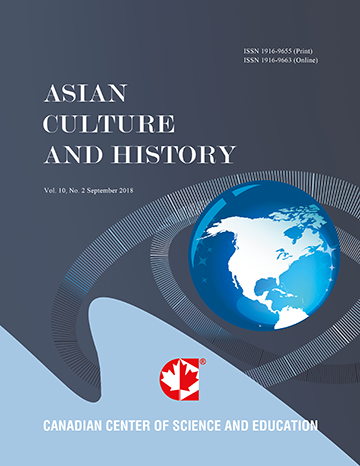Development, Immigration, And Social Harms of Iranian Small Towns: A Case Study
- Fatemeh Nazifi
Abstract
Immigration is compelled by social, political and economic factors. One reason for immigration is claimed to be seeking better future. Then the mentioned transitions could be daunting, affecting social marginalization, loss of social networks, health care access issues and adverse health consequences, including depression and anxiety. It is claimed that immigrants encounter challenges while acclimatizing to their new country and a majority of them might be influenced by the process of immigration. It is claimed that the Islamic revolution, political changes, war, and sanctions from the United States of America have obliged many Iranians to flee their homeland over the last three decades and social harms of this immigration; especially through Iran was required to be studied. This research was a survey conducted in Qiamdasht which is a small town in Ghaniabad Rural District, in the Central District of Rey County, Tehran Province, Iran. In this study, systematic random sampling was applied, resulting in 245 participants to be interviewed and respond to the questionnaires. The design of this research included Survey Research and Ex-Post Facto. Since this was a survey in which the selected families were investigated in terms of economic, cultural and social aspects, interviews and questionnaires were used. To measure the dependent and independent variables through questions, a questionnaire in 8 pages containing 69 open-ended questions on 9-point Lickert scale was established. The data were transferred to SPSS version 21 for further analysis. The results revealed that Immigrants observe the codes of ethics less than the others. Immigrants have lower Socio-economic status. Immigrants play a smaller role in solving the social affairs. Immigrants own low-level desires and wishes. Immigrants apply rationality in their life affairs less than the others. By improving their socio-economic status, immigrants better observe the codes of ethics, their rationality improves, their social mobility improves, their role in social affairs improves, moreover, it was found that by improving their economic development, qualitative development increases and finally immigration rate was found to have a diverse relationship with qualitative development.
- Full Text:
 PDF
PDF
- DOI:10.5539/ach.v8n2p115
Journal Metrics
Google-based Impact Factor (2017): 5.42
h-index (January 2018): 11
i10-index (January 2018): 21
h5-index (January 2018): 6
h5-median (January 2018): 9
Index
- Academic Journals Database
- CNKI Scholar
- COPAC
- EconPapers
- Elektronische Zeitschriftenbibliothek (EZB)
- Excellence in Research for Australia (ERA)
- Genamics JournalSeek
- Google Scholar
- Infotrieve
- LOCKSS
- MIAR
- NewJour
- Open J-Gate
- PKP Open Archives Harvester
- Publons
- RePEc
- Scilit
- SHERPA/RoMEO
- Standard Periodical Directory
- Technische Informationsbibliothek (TIB)
- The Keepers Registry
- Universe Digital Library
- WorldCat
Contact
- Ivan YongEditorial Assistant
- ach@ccsenet.org
